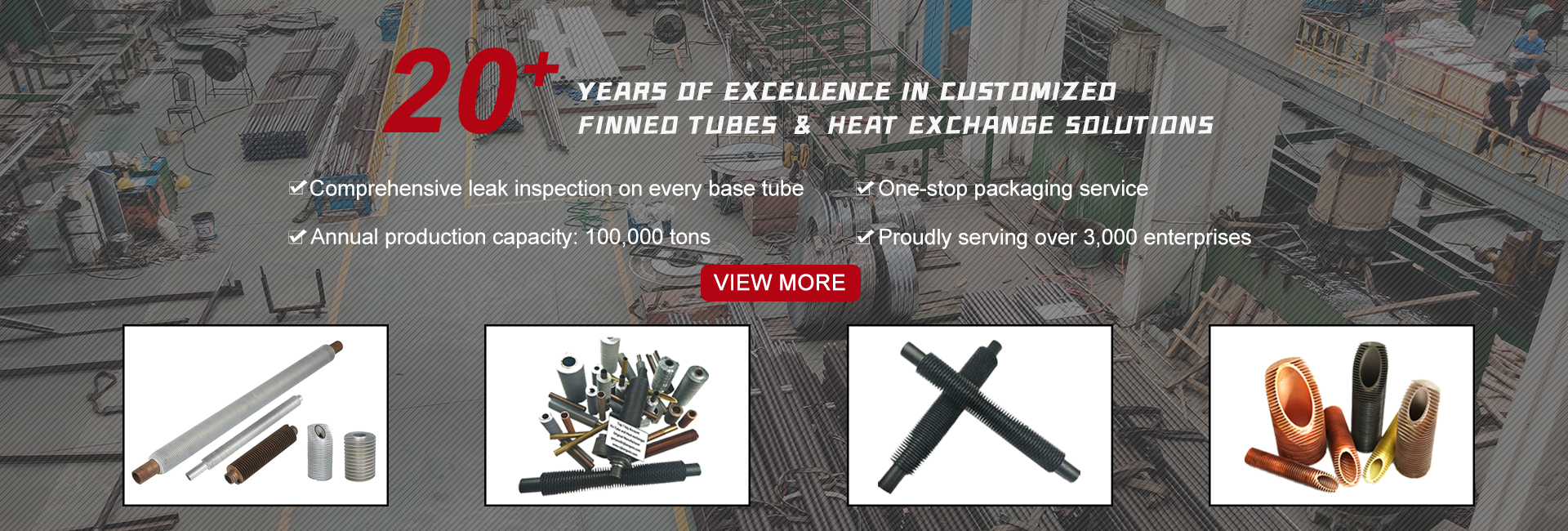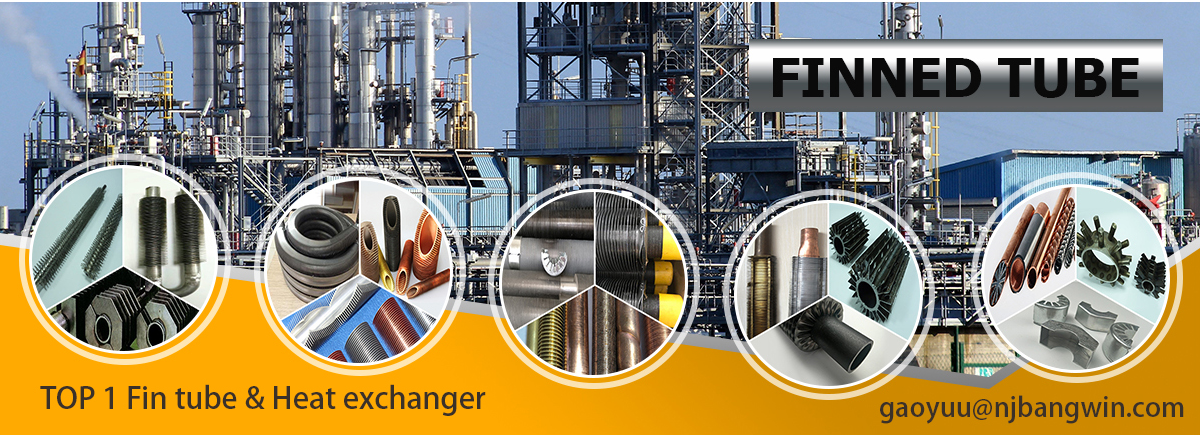
Inhaltsübersicht
- Einführung
- Was ist ein Spiralrippenrohr?
- Manufacturing Process
- Wesentliche Merkmale
- Technical Specifications
- Vorteile
- Industrielle Anwendungen
- Häufig gestellte Fragen (FAQ)
- Schlussfolgerung
Einführung
A Spiralrippenrohr, or spiral finned tube, is a compact heat exchanger component designed to enhance the surface area for heat transfer while maintaining a small form factor. The fins are formed by wrapping a metal fin strip in a spiral shape around the tube, creating a high-efficiency heat exchanger tube with excellent mechanical strength and service life even in aggressive environments.
Die Spiralrippenrohr is a popular choice in power generation, petrochemical industry, HVAC systems, and waste heat recovery.
Was ist ein Spiralrippenrohr?
Die Spiralrippenrohr is a metal tube with continuous spiral fins on its outer surface. The finning increases the external surface area for more efficient heat transfer from the air or gas to the tube.
Main components:
- Base tube: carbon steel tube, stainless steel tube, copper tube, titanium tube, alloy steel tube, etc.
- Fin: aluminum fin, copper fin, stainless steel fin, carbon steel fin, etc.
- Fin type: L-fin, KL-fin, G-fin, and welded spiral fin.
The unique spiral structure provides uniform heat distribution and better performance under thermal stress and vibration.
Manufacturing Process
- The main steps to produce a Spiralrippenrohr are tube preparation, fin forming, spiral winding, bonding, finishing, and testing.
- Tube preparation: The base tube is cleaned and straightened.
- Fin forming: The metal fin strip is formed and prepared for the winding process.
- Spiral winding: The fin strip is wound in a spiral direction around the tube under high tension.
- Bonding: The fin is either L-shaped, KL-shaped, G-shaped, or welded to the tube.
- Finishing & testing: The final Spiralrippenrohris inspected for fin tightness, uniformity, and dimensions.
Wesentliche Merkmale
- Enhanced heat transfer surface area for high performance.
- Durable fin-to-tube bond for long service life.
- Corrosion & high temperature/pressure resistance.
- Aluminum, copper, stainless steel, and carbon steel materials.
- Easy to install and maintain.
- Customizable fin dimensions and shapes.
Technical Specifications
Parameter | Spezifikation |
Tube Outer Diameter | 19 mm – 63 mm |
Flossenhöhe | 6 mm – 20 mm |
Flossendicke | 0.3 mm – 1.2 mm |
Flossenteilung | 8 – 11 FPI (fins per inch) |
Flossenmaterial | Aluminum, Copper, Carbon Steel, Stainless Steel |
Rohr Material | Carbon Steel, Stainless Steel, Alloy Steel |
Max Operating Temperature | Up to 450 °C |
Vorteile
- High Heat Transfer Efficiency: The spiral fin provides the largest surface area between the air/gas and the tube.
- Durable Structure: The winding method forms a strong fin bond to the tube.
- Versatile Applications: Used for both heating and cooling process.
- Corrosion & Temperature Resistant: Can work in corrosive and high-temperature/pressure environments.
- Cost-Effective: Long service life and easy maintenance save operating cost.
- Flexible Design: Multiple fin types (L, KL, G, welded) for various thermal performance needs.
Industrielle Anwendungen
- Power Generation: Boiler economizers, air preheaters, etc.
- Petrochemical Industry: Process heaters, coolers, etc.
- HVAC Systems: Condensers, evaporators, air handling units.
- Food & Beverage Industry: Heat recovery, thermal processing.
- Oil & Gas: Gas coolers, refinery equipment.
- Waste Heat Recovery: Industrial heat recovery from exhaust.
Häufig gestellte Fragen (FAQ)
Q1: What is the difference between spiral fin tubes and extruded fin tubes?
A1: Spiralrippenrohrs are manufactured by wrapping a fin strip around the tube, whereas extruded fin tubes are made by extrusion method. Spiralrippenrohrs are generally more cost-effective and suitable for a wider range of applications.
Q2: Can spiral fin tubes handle high temperatures?
A2: Yes, based on the fin and tube material, it can handle high temperatures of up to 450 °C.
Q3: Are spiral fin tubes corrosion-resistant?
A3: Yes, especially when using aluminum or stainless steel fins.
Q4: In which industries are spiral fin tubes most commonly used?
A4: Power plants, chemical industry, HVAC systems, oil & gas, and food processing are some of the most common industries that use Spiralrippenrohrs.
Q5: Can the size and pitch of fins be customized?
A5: Yes, all the dimensions including tube OD, fin height, thickness, and pitch can be customized to your project requirements.
Schlussfolgerung
A Spiralrippenrohr is an excellent, high-quality, efficient, and cost-effective heat exchanger tube solution for modern applications. The spiral design increases the heat transfer area, reduces energy consumption, and provides long-lasting reliable performance in harsh environments.
Choose either standard or custom-engineered Spiralrippenrohrs for your power generation, HVAC, oil & gas, industrial heat recovery, or any other heat exchanger application.
